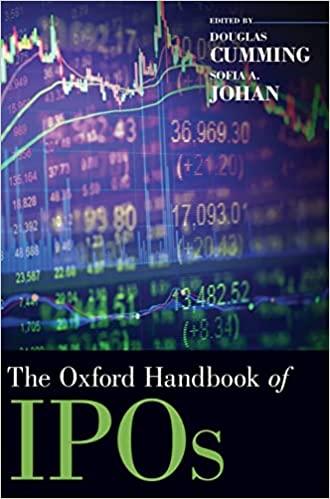Question
There are thousands of mutual funds available, with no shortage of sources of information about them. Newspapers regularly report the value of each unit, mutual
There are thousands of mutual funds available, with no shortage of sources of information about them. Newspapers regularly report the value of each unit, mutual fund companies and brokers advertise extensively, and there are books on the subject. Many of the advertisements imply that individuals should invest in the advertisers mutual fund because it has performed well in the past. Unfortunately, there is little evidence to infer that past performance is a predictor of the future. However, it may be possible to acquire useful information by examining the managers of the mutual funds. Several researchers have studied the issue. One project gathered data concerning the performance of 2,029 funds.
The performance of each fund was measured by its risk adjusted excess return, which is the difference between the return on investment of the fund and a return that is considered a standard. The standard is based on a variety of variables, including the risk-free rate.
Four variables describe the fund managers: age, tenure (how many years the manager has been in charge), managers highest degree, and a measure of the quality of the managers education (the average Scholastic Achievement Test [SAT] score of students at the university where the manager received his or her undergraduate degree).
Conduct an analysis of the data. Determine the best model (if any) for predicting fund performance.
Step by Step Solution
There are 3 Steps involved in it
Step: 1

Get Instant Access to Expert-Tailored Solutions
See step-by-step solutions with expert insights and AI powered tools for academic success
Step: 2

Step: 3

Ace Your Homework with AI
Get the answers you need in no time with our AI-driven, step-by-step assistance
Get Started


